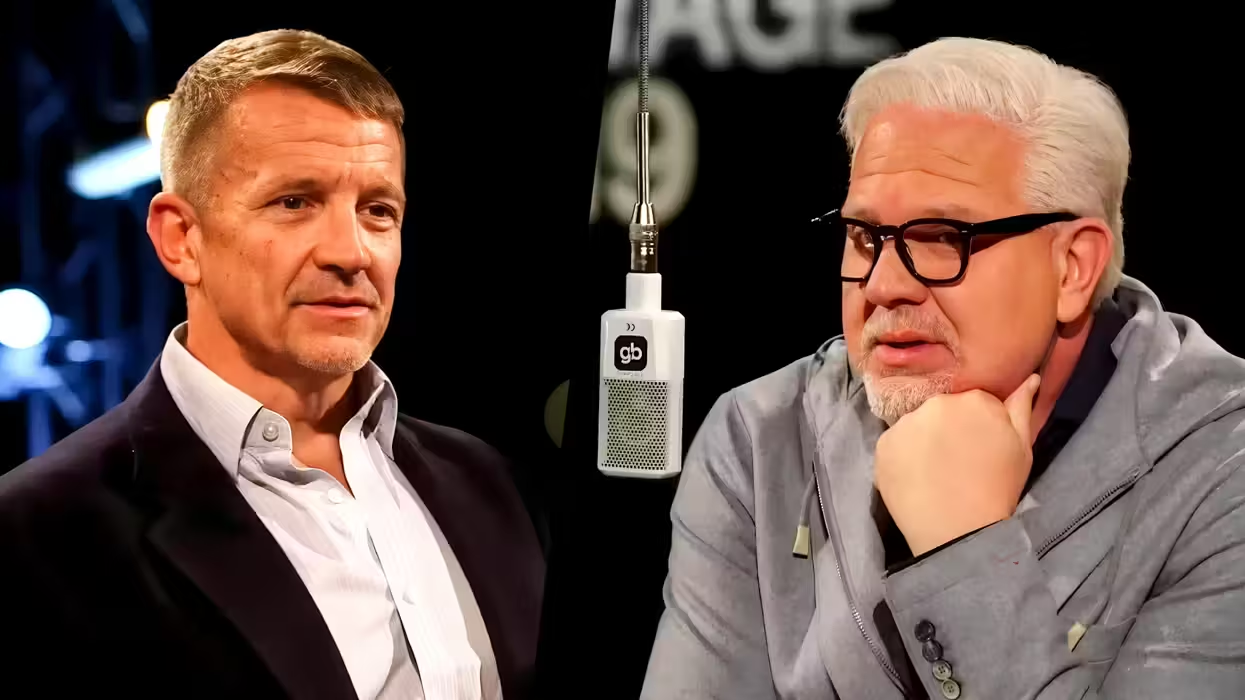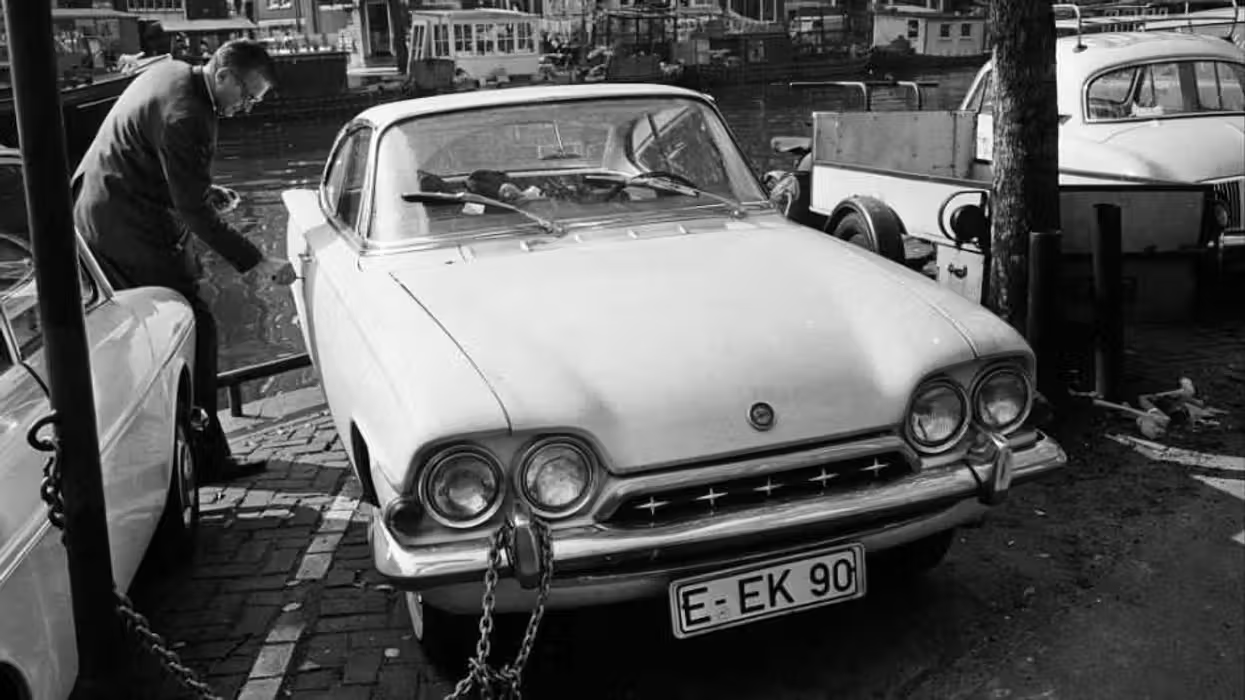© 2025 Blaze Media LLC. All rights reserved.
"...based on how well the companies run by some of the CEOs on the list performed for shareholders, several of them are clearly not worth their pay."
It’s that time of year again, when proxies are released and many business publications run lists of the highest paid CEOs at America’s large public companies.
The compensation figures are extraordinarily high, sometimes ranging into the tens of millions of dollars. The good folks at 24/7 Wall St. looked into the compensation of CEOs at the 100 public companies that paid their chief executives the most during calendar 2010.
However, based on how well the companies run by some of the CEOs on the list performed for shareholders, it seems that several of them are not worth their pay.
24/7 Wall St. obtained the list of companies with the 100 highest paid CEOs from GMI, an independent governance ratings firm. The CEOs’ total compensation includes base salary, perks, cash bonuses, equity awards and any increase in pensions and other retirement benefits. They then looked at the stock performance of these companies during 2010. Stock performance data was obtained from Capital IQ.
The list is comprised of companies whose CEOs were among the highest paid during 2010, yet their stocks performed the worst and had the largest price drops that same year. The list makes sure to excluded chief executives who are no longer with their company, like Mark Hurd of Hewlett-Packard, who might have otherwise made the list.
Shareholders who cannot effectively vote to have management removed are saddled not only with those ineffectual executives, but also with their pay packages. The notion of “pay for performance” is still not applied systematically in some of America’s largest public companies.
 Kevin Sharer
Kevin Sharer
Company: Amgen Inc.
Total compensation: $21,138,133
Change in stock price: -3.0 percent
Sales at the world’s largest biotech company rose from $14.6 billion in 2009 to $15.1 billion in 2010. Net income was higher by 2 percent to $4.6 billion. Amgen has relied heavily on its anemia drugs, which have experience eroding sales over the past two years.
The firm’s flagship drugs, Epogen and Aranesp, fall into this red blood cell booster category. Largely because of worry over the future of these products, the stock has been flat for three years. Amgen’s margins also likely will be hurt by the introduction of generic versions of some of its drugs. Sharer made an extraordinary $26 million over the two years that ended in 2010. During that time Amgen’s shares were flat compared to a 65 percent increase in the Nasdaq.
 William Weldon
William Weldon
Company: Johnson & Johnson
Total compensation: $28,720,491
Change in stock price: -4.0 percent
Johnson & Johnson has been battered by product recalls that have hurt the company’s sales and tarnished its brand — one that was once among the most valuable in the world. In a period that ended last April, J&J had 22 product recalls in 19 months. Among the products recalled were widely sold Motrin and Children’s Tylenol.
Last year’s damage has already spilled into this year’s results. In January, J&J had forecast 2011 earnings per share of about $4.85, well below analysts’ expectations of $4.99 a share for 2011. Weldon has spent a great deal of his time handling the recall scandal. He was grilled by a congressional committee last September and exchanged barbs with Food and Drug Administration officials over the recalls.
 Robert Stevens
Robert Stevens
Company: Lockheed Martin Corporation
Total compensation: $21,897,820
Change in stock price: -7.2 percent
The drop in Lockheed Martin’s share price did not just occur over the course of 2010. Its stock has underperformed the DJIA over the past five years as well. While revenue in 2010 was up to $45.8 billion from $44 billion the year before, net income fell to $2.9 billion — lower than any of the previous three years. The anticipation of federal defense budget cuts may have hurt Lockheed’s share price.
Expect sales overseas to be strong for the next several years. The blame for delays and test problems with Lockheed’s huge F-35 program do belong with Stevens. And while Stevens still has a job, in June the company said it would cut 6,500 workers.
 William Swanson
William Swanson
Company: Raytheon Co.
Total compensation: $18,787,343
Change in stock price: -10.1 percent
Defense contractor Raytheon had net income of $1.8 billion in 2010 down from $1.9 billion the year before. Revenue was nearly flat at $25 billion. Raytheon shares have probably suffered because of concerns about the government’s defense budget. The firm’s pension liabilities are nearly $5 billion. Swanson’s compensation raises the question of whether a company in a troubled industry, even if relatively well run, should pay its CEO this much while shareholders do poorly. Swanson has made almost $58 million over the three years that ended in 2010.
 Miles White
Miles White
Company: Abbott Laboratories
Total compensation: $25,564,283
Change in stock price: -11.3 percent
Abbott Labs recently announced it would break itself into two companies. It was the best thing management has done for shareholders in years. Abbott has been criticized for its acquisition spree, and now it has decided to break the businesses it has acquired into parts.
Abbott has also struggled with product development. The drug and medical device company has failed to develop any major pharmaceuticals out of its M&A operations in the past two years. Abbott’s revenue rose from $30.8 billion in 2009 to $35.2 billion in 2010, but net income fell from $5.7 billion to $4.6 billion.
See the Rest of The List Here.
(Douglas A. McIntyre--24/7 Wall St./The Blaze)
Want to leave a tip?
We answer to you. Help keep our content free of advertisers and big tech censorship by leaving a tip today.
Want to join the conversation?
Already a subscriber?
more stories
Sign up for the Blaze newsletter
By signing up, you agree to our Privacy Policy and Terms of Use, and agree to receive content that may sometimes include advertisements. You may opt out at any time.
Related Content
© 2025 Blaze Media LLC. All rights reserved.
Get the stories that matter most delivered directly to your inbox.
By signing up, you agree to our Privacy Policy and Terms of Use, and agree to receive content that may sometimes include advertisements. You may opt out at any time.





